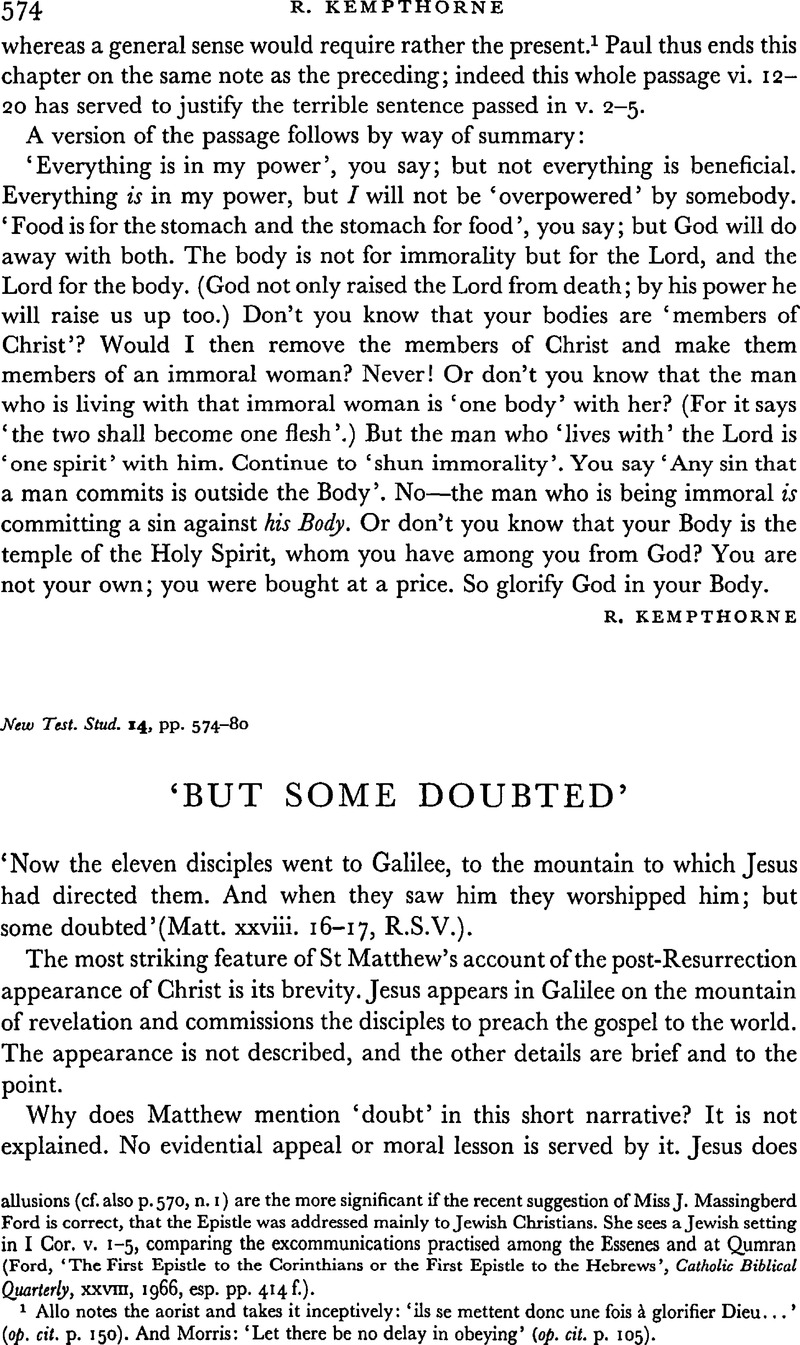Article contents
‘But Some Doubted’
Published online by Cambridge University Press: 05 February 2009
Abstract

- Type
- Short Studies
- Information
- Copyright
- Copyright © Cambridge University Press 1968
References
page 575 note 1 Pelican Gospel Commentary on St Matthew, P. 453.
page 576 note 1 Plato, Theaetetus 190a, Ion 534c, Laws 897b, Sophist 235a (Oxford edition).
page 576 note 2 Aristode, Nicomachean Ethics 1112b2 (Oxford edition).
page 576 note 3 Vocabulary of the Greek New Testament, p. 165.
page 576 note 4 Lampe, G. W. H. (ed.), A Lexicon of Patristic Greek, fasc. 2, p. 375.Google Scholar
page 577 note 1 Cf. Lohmeyer, E. (ed. Schmauch, W.), Das Evangelium des Matthäus (Göttingen, 1962), p. 415.Google Scholar
page 577 note 2 Bornkamm, G., Barth, G., Held, H. J., Tradition and Interpretation in Matthew, p. 131, n. 1.Google Scholar
page 578 note 1 Bornkamm, etc., op. cit. p. 118, and see p. 119, ‘Matthew knows that in the congregation love grows cold’.
page 579 note 1 W. C. Allen, International Critical Commentary, St Matthew's Gospel, p. 305, and see p. 303, ‘It is inconceivable that Matthew should end his gospel leaving his readers with the impression that some of the Eleven doubted the fact of Christ's resurrection.’ Allen reads doubt as disbelief.
- 4
- Cited by


